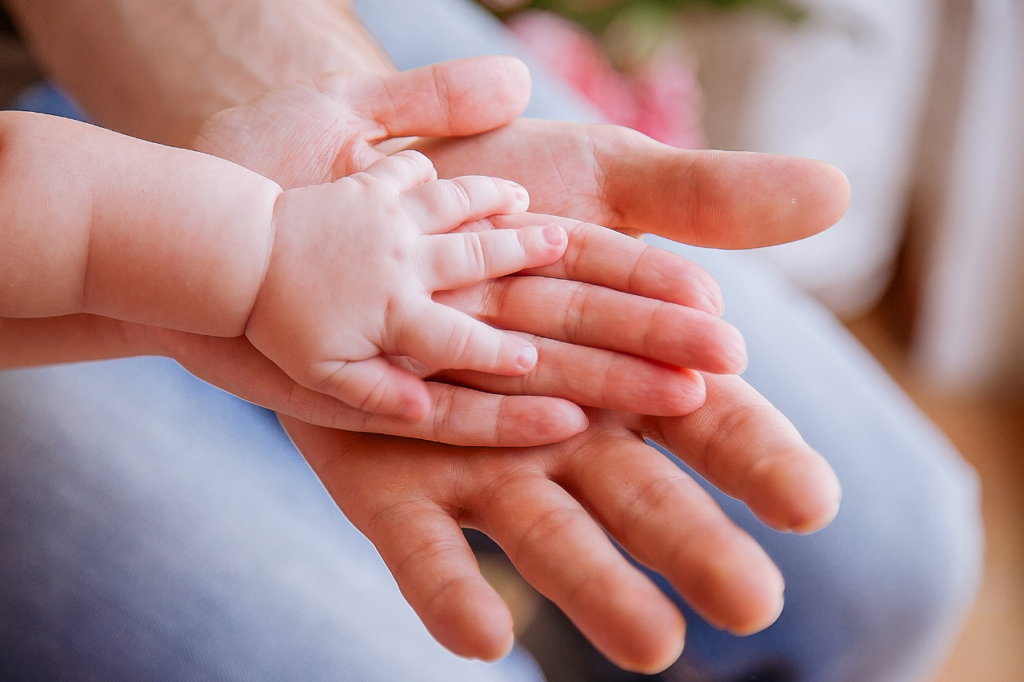The old rocking chair creaked under Anne’s weight, a mournful rhythm that matched the ache in her heart.
In her lap lay a worn photo album, its pages filled with smiling faces and vibrant memories that now felt like echoes from a distant past.
A single tear rolled down her cheek, landing on a picture of a little girl with pigtails and sparkling eyes – Pam.
It had been a year since their lives had shattered into a million pieces, a year since they had learned the devastating truth that sometimes, when you pray for healing and it doesn’t come, the world loses its color and joy fades into a dull ache.
Pam had been their sunshine, their laughter, their reason for being. Her infectious giggle had filled their home with warmth, her tiny handprints a testament to her boundless energy and curiosity.
But then, the diagnosis had come like a thief in the night, stealing their happiness and replacing it with fear and uncertainty.

Leukemia. The word had hung heavy in the air, casting a shadow over their lives. They had prayed fervently, their voices filled with desperation and hope.
They had attended countless doctor’s appointments, endured endless rounds of chemotherapy, and clung to every sliver of optimism offered by the medical team.
But Pam’s little body, once so full of life, had slowly withered away. The once vibrant cheeks had become pale and sunken, the playful eyes had grown dull with pain.
Anne and Chuck had watched helplessly as their daughter slipped further and further away, their prayers echoing in the sterile hospital room.
The day Pam took her last breath, the world had stopped. The rhythmic beeping of the machines had ceased, replaced by a deafening silence that swallowed them whole.
Anne had held Pam’s lifeless hand, her tears falling onto the cold, pale skin. Chuck had stood by her side, his shoulders shaking with silent sobs.
Table of Contents
ToggleThoughtful 'Get Well Soon' Gifts - Our Top Picks
Click Each to View on Amazon
In the days and weeks that followed, they had tried to pick up the pieces of their shattered lives.
But the void left by Pam’s absence was too vast, the pain too deep. Their home, once filled with the sound of laughter and music, now echoed with emptiness.
Anne found solace in the garden, her hands digging into the soil, nurturing new life as a way to honor Pam’s memory.
Chuck sought refuge in his work, burying himself in endless hours of overtime, hoping to numb the pain that gnawed at his soul.
But no matter how hard they tried, they couldn’t escape the grief that haunted them.
It lurked in every corner, whispered in every breeze, and echoed in every silent moment.
The world had moved on, but they were frozen in time, trapped in a perpetual state of mourning.
As Anne turned the pages of the photo album, her heart ached with a longing so intense it was almost unbearable.
She closed her eyes, remembering the feel of Pam’s soft curls against her cheek, the sound of her laughter echoing in her ears.
The rocking chair creaked again, a reminder that life went on, even when it felt like it shouldn’t. Anne opened her eyes, a single tear tracing a path down her cheek.
She knew she would never fully heal, but she also knew she had to find a way to live with the pain, to carry Pam’s memory in her heart and honor her life by continuing to live her own.
Related Posts
How to Pray for Healing and What to Do If Nothing Happens

The story of Anne and Chuck highlights the agonizing question many face: what do you do when you pray for healing and it doesn’t come?
Prayer is a powerful tool, a way to connect with God and seek comfort in times of need. But when it goes seemingly unanswered, it can leave us feeling lost, betrayed, and questioning our faith.
Here’s how you can approach a prayer for healing, and navigate the difficult path when it doesn’t come:
- Pray with an Open Heart: Approach prayer not as a demand, but as a conversation. Express your deepest desires for healing, but also acknowledge that the outcome is ultimately in God’s hands. Surrender your expectations and be open to the possibility that healing may come in unexpected ways, or perhaps not at all in this lifetime.
- Seek Comfort in Community: Turn to your faith community for support. Share your struggles with trusted friends, family, or clergy members. Join prayer groups or attend services where you can draw strength from others who understand your pain.
- Find Meaning in Suffering: While it may seem impossible in the depths of grief, try to find meaning in your suffering. Explore how this experience has changed you, what lessons you have learned, and how you can use your pain to help others.
- Don’t Give Up on Prayer: Even when healing doesn’t come as you had hoped, don’t abandon prayer. Continue to turn to God for comfort, strength, and guidance. Remember that prayer is not just about asking for what you want, but also about deepening your relationship with God.
- Seek Professional Help: If your grief is overwhelming, don’t hesitate to seek professional counseling or therapy. A trained therapist can provide valuable support and tools to help you navigate your emotions and find healthy ways to cope.
When You Pray and Someone Still Dies

Unfortunately, sometimes despite fervent prayers, someone you love may still pass away. Here are some things you can do to help navigate the turbulent waves of grief:
- Allow Yourself to Grieve: Don’t suppress your emotions or try to rush through the grieving process. Allow yourself to feel the pain, anger, sadness, and confusion. Cry, scream, or express your emotions in whatever way feels right for you. Remember, grief is a natural response to loss, and it takes time to heal.
- Know That It’s Okay Question: When you pray for healing and it doesn’t come, it’s perfectly normal to question your faith, even to feel angry at God. Don’t be afraid to express your doubts and frustrations. Seek guidance from trusted spiritual leaders or mentors who can help you process these difficult emotions. Remember, faith is not about blind acceptance but about seeking understanding even in the midst of pain.
- Honor Your Loved One’s Memory: Find ways to keep your loved one’s memory alive. Create a photo album, write a tribute, or share stories about them with others. Consider volunteering for a cause they cared about or donating to a charity in their name. These acts of remembrance can help you feel closer to them and provide a sense of purpose in your grief.
- Embrace Hope: While the pain of loss may never fully disappear, remember that there is always hope. Hope for healing, hope for comfort, and hope for a future filled with love and joy. Hold onto the memories of your loved one, cherish the time you had together, and allow their legacy to inspire you to live a life filled with purpose and meaning.
Short Prayer for Healing and Recovery for Someone

If you or someone you know is facing a health crisis, feel free to customize this prayer or use it as inspiration to voice your own supplication.
Oh God,
Why? Why [loved one’s name]? Why now?
Their pain rips through my soul, and my heart bleeds with every labored breath they take.
I have prayed, Father. I have begged. I have pleaded for Your mercy, Your healing touch. But where are You? Are my cries too weak? My faith too small?
[Loved one’s name]’s laughter, once full of life, is now a distant echo, replaced by the sterile beeping of machines and hushed whispers of fear. Their vibrant spirit, once a blazing fire, now flickers dimly, threatened by the darkness that encroaches.
God, I am angry. I am heartbroken. I am lost.
Yet, even in this abyss of despair, I remain hopeful. I desperately plea for a miracle. Please, God, hear my prayer. Breathe life back into [loved one’s name]’s weary body. Ignite the spark within their soul.
Give me strength to endure this agonizing trial. Give me the courage to face each uncertain dawn. And if, healing is not to be, please grant me the grace to accept Your will.
I cling to You, God, my only anchor in this storm. Please, don’t let go.
Amen.
Why Does God Heal Some and Not Others? Why Isn’t God Healing Me?

The question of why God heals some and not others is a deeply complex and often painful one, especially for those who are suffering and seeking divine intervention. Below are a few key points to consider:
- God’s Sovereignty: God is ultimately in control and His ways are higher than our ways (Isaiah 55:9). We may not always understand His reasons or timing, but we can trust that He has a purpose for everything, even in the midst of suffering.
- God’s Will vs. Our Desires: While we may pray fervently for healing, it’s important to remember that God’s will may not always align with our desires. Sometimes, His plan for our lives may involve enduring hardship or facing illness. This doesn’t mean He doesn’t love us or hear our prayers, but rather that He has a greater purpose in mind.
- Healing Isn’t Always Physical: While we often equate healing with physical restoration, it can also manifest in other ways. God may bring emotional, spiritual, or relational healing, even in the absence of physical cure. He may use our suffering to draw us closer to Him, to strengthen our faith, or to equip us to minister to others who are hurting.
- Suffering as a Part of Life: The Bible doesn’t shy away from acknowledging the reality of suffering in this fallen world. In fact, it promises that we will face trials and tribulations (John 16:33). However, it also assures us that God is with us in our suffering and that He can use it for our good and His glory (Romans 8:28).
- Faith in the Midst of Uncertainty: While it’s natural to question or even get angry at God when you pray for healing and it doesn’t come, it’s also important to hold onto faith. Trusting in God’s goodness and sovereignty doesn’t mean denying the pain or pretending everything is okay. It means choosing to believe that He is working all things together for our good, even when we can’t see the bigger picture.
Ultimately, the question of why God heals some and not others is a mystery that we may not fully understand. But we can trust that God is good, that He loves us, and that He has a purpose for our lives, even in the midst of suffering.




